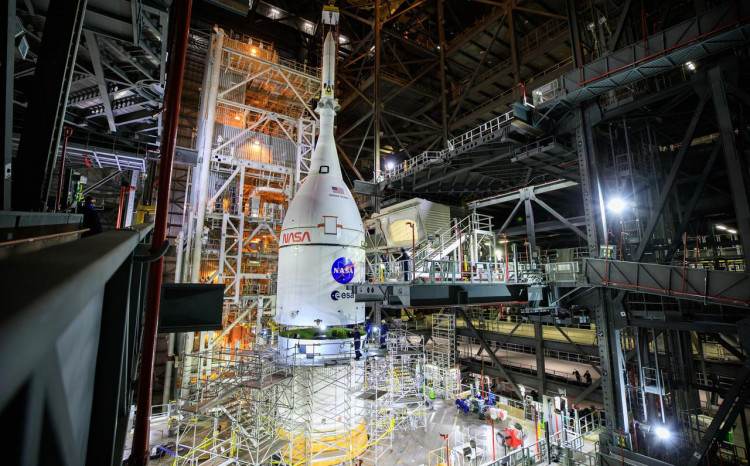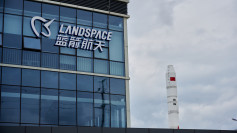Due to safety concerns with ground equipment on the booster's mobile launcher platform, NASA canceled a critical fueling test of its Artemis 1 moon rocket on Sunday.
On Sunday (Apr. 3), technicians at NASA's Kennedy Space Center (KSC) in Florida planned to fuel the Artemis 1 megarocket, known as the Space Launch System (SLS), with 700,000 gallons (2.6 million liters) of super-cold propellant. The fuelling test was the penultimate part of a three-day "wet dress rehearsal" to test the launch countdown process for NASA's Artemis 1 mission to the moon, which is scheduled to launch later this year.
However, an issue with the Artemis 1 rocket's mobile launcher, a platform that comprises its gantry tower and other critical equipment, thwarted the test, according to NASA officials. A fan-powered device that was used to pressurize the mobile launcher and keep dangerous gases out failed.
NASA will try to complete the wet dress rehearsal on Monday (Apr. 4), with fuel loading expected to begin at about 7 a.m. During a news conference conducted Sunday evening, agency officials confirmed the time was 1100 p.m. EDT (1100 p.m. GMT).
Saturday was a very stormy day in Cape Canaveral, where KSC is located; weather forecasters for the procedure projected a 90% likelihood of precipitation and an 80% risk of lightning, both of which occurred.
During the news conference, Charlie Blackwell-Thompson, the Artemis 1 launch director, said that responding to the lightning strikes took roughly four hours. The teams made up the majority of that time overnight, and authorities decided to hold a wet dress rehearsal on Sunday.
However, just after 7:00 a.m., according to Blackwell-Thompson, the team was informed of an issue with a fan that pressurizes the mobile launcher around 1100 a.m. EDT (1100 a.m. GMT). The problem was discovered to be a breaker trip, so employees switched to the fan's redundant backup, only for that fan to quit working as well.
As of 5:30 p.m. local time (2130 GMT), teams were inspecting the fan system, Blackwell-Thompson said, and she expected to have their results in hand within an hour or two.
Teams were evaluating the fan system as of 5:30 p.m. local time (2130 GMT), according to Blackwell-Thompson, and she expected to receive their findings within an hour or two.
The wet dress rehearsal for the Artemis 1 rocket is an important stage in ensuring that the SLS rocket is ready for launch. The booster is NASA's most powerful rocket to date, as well as the agency's first moon rocket since the Saturn V rockets launched Apollo astronauts in the 1960s and 1970s.





